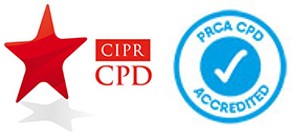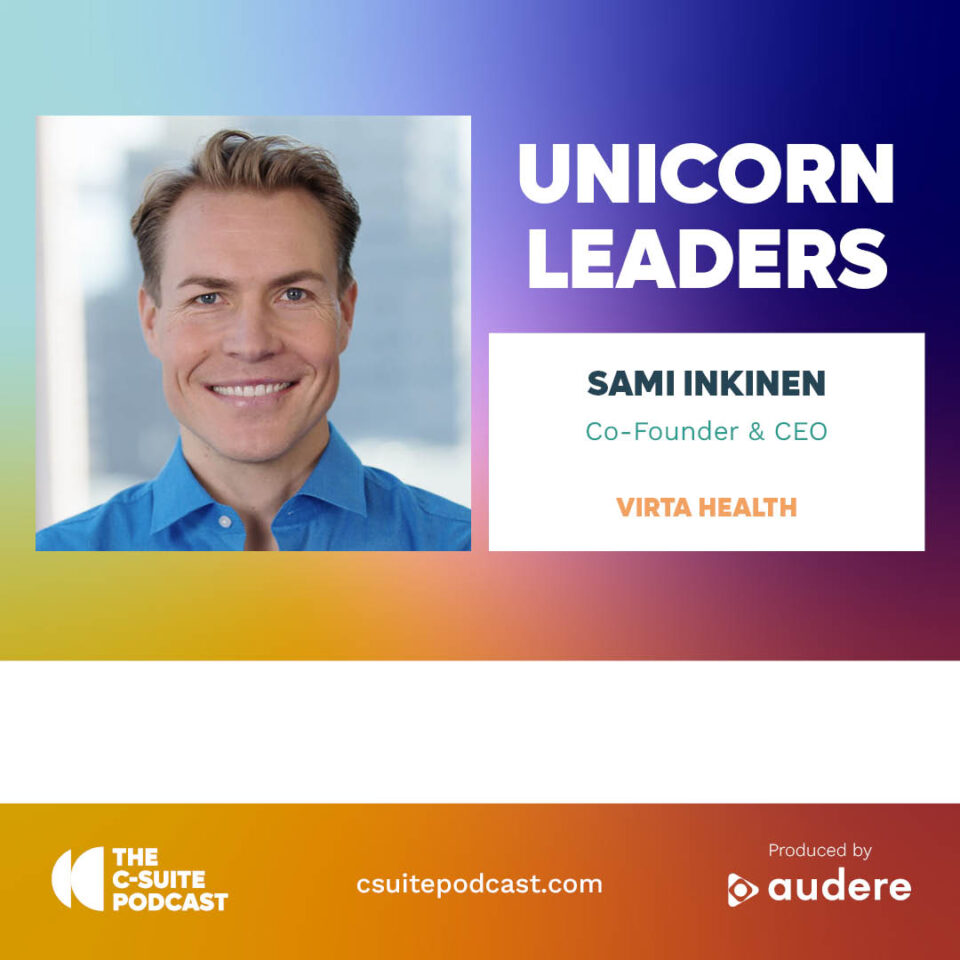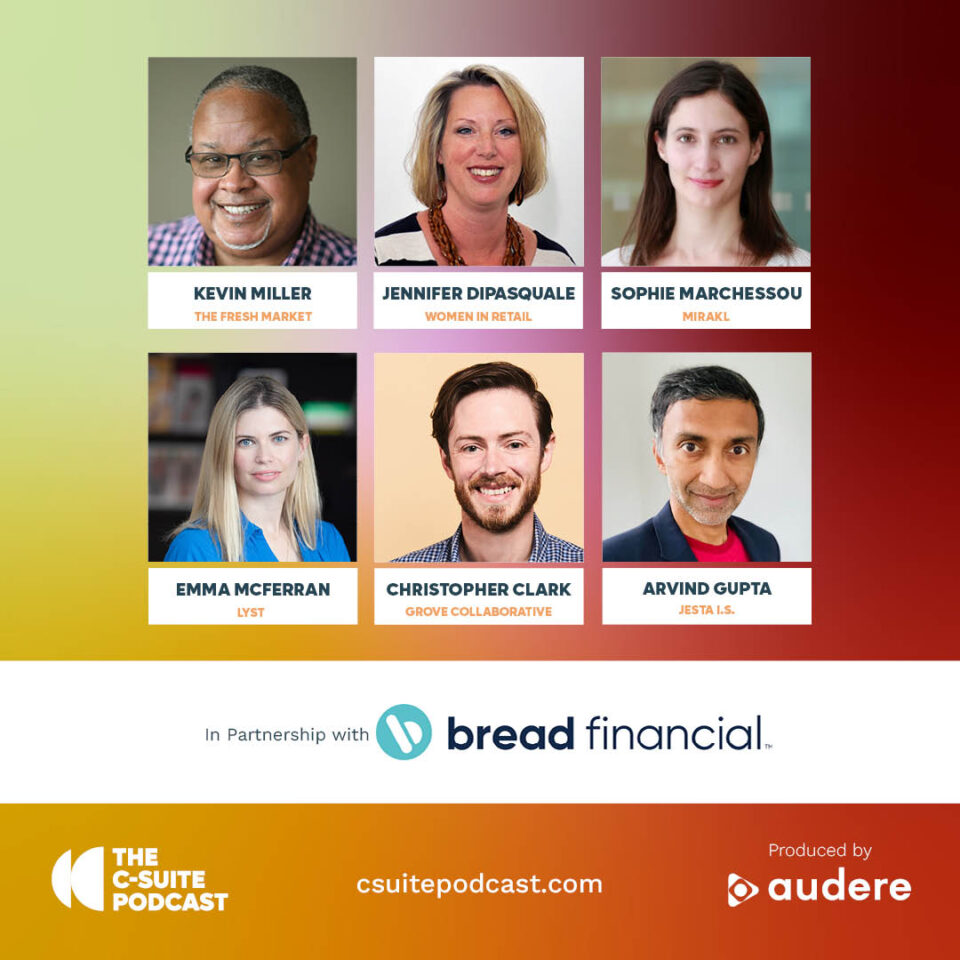
CIPR members receive 5 CPD points and PRCA members receive 10 CPD points for listening to this podcast if they log it on the CPD programme.
The 24th in our series of episodes of the csuite podcast that we’re recording in partnership with the European PR Agency Tyto and their own Without Borders podcast, where we are interviewing leaders of unicorn companies to find out about the key issues, pain points and challenges that start-ups face and how they can address them with a strategic approach to marketing and communications.
Russell Goldsmith and co-host, Tyto’s Senior Partner, Holly Justice were joined online, by Tom Livne, CEO and Founder of Verbit, a company that employs the largest professional captioner workforce in the world, and has emerged as the leader in the $30 billion transcription industry. Founded in 2017 Verbit reached a unicorn status in June 2021 after securing $157m in Series D funding and now has a valuation of over $2bn.
Tom kicked off the conversation by giving a brief overview of Verbit. He said it’s the largest AI powered transcription platform, employing almost 600 people and since starting the company they’ve raised more than $600 million from Tier 1 investors. While specialising in various industries such as education, legal, and media, he said that digital transformation has been an important talking point after the Covid pandemic, especially with continual remote working and learning and they were the go-to company to assist all those companies needing to comply with the regulation of accessibility. His career started as a lawyer, where he said he faced problems with transcription, and from being the frustrated customer to showing eagerness to solve the problem, he found a better solution. He explained that as an entrepreneur, there’s always a problem to solve, a problem with high friction, low efficiency, where you can bring in technology to make it more efficient and frictionless. He said an example being what Uber did for the taxi industry, before Uber, you had to call a taxi, go down and wait in the rain, then tell the taxi where to go and they’d get it wrong, and it really wasn’t efficient. So today, with just one click everything can be done. In terms of transcription, he was a frustrated customer, with outdated, manual, and low efficient software, when he decided he wanted to apply technology to revolutionise the market, and when thinking about automation and digital transformation, it’s usually driven by AI. Which is where he found himself establishing Verbit, where five years ago they never dreamt of being where they are today. He said that through hard work they were reaching more than 100 million in annual recurring revenue, and in the next five years they’re aiming to be at a billion-dollar revenue per annum.
Key Takeaways
Tom explained that the number one lesson he’s learned, would be doing something you’re passionate about. Before Verbit he had another company within the cybersecurity space, where he lacked a background that related to cybersecurity, and a passion for it, which is why it didn’t succeed so well. Being an entrepreneur means needing a lot of luck to be successful, and there are certain characteristics needed, as it’s not a trivial decision to be an entrepreneur, and if you want to go for something, you need to be passionate about it. Another lesson is it’s all about the people, you can’t build a company alone, and the decisions around who you’re going to start with and hire for the management team are crucial. There is an incessant need to evaluate management teams to see if they are still the right people to drive the company to the next level, while giving people the freedom to operate. The people you hire are generally much better than you in their domain, which leads on to another lesson, which is to always hire people that you’d work for yourself. He added that at Verbit more than 60% of their staff are women.
Tom said he learned a lot from his previous company, all of which helped him avoid previous mistakes when he started Verbit. He said it makes you step out of your comfort zone and everything he’s doing now, is something he’s doing for the first time, he’s never managed a company with more than 600 people, with more than 2500 customers, with that kind of valuation and growth.
He thinks finding the product market fit and getting your team right are the critical steps in building a company that’s going to endure the long term. He said that there are certain people who are good for the very early chaotic environment and different people are stronger in scaling the business, so it’s important to understand the type of people you want to bring into the business.
Unicorn Status
Tom said that reaching unicorn status hasn’t changed the perception of the business but given them a reason to celebrate working hard for four years to reach this milestone. It means there are a lot of investors that believe in them and the fact that they are at the top of the $30 billion market, means that they checked their technology, and think they have the best technology in the market. As a founder and CEO, you always need to be the best salesperson in the company whether you sell to investors, employees, customers etc. He explained that they’re happy but also understand the responsibility and what the expectations are, along with how they need to deliver and keep growing the business.
The Pitch
He said when people choose their provider in this space, they usually look at:
- How much the service costs?
- How fast the turnaround is?
- What do the accuracy levels looks like?
- Is there unlimited capacity to scale with?
- Is the platform secure and easy to use?
He said if you check all those parameters and know that each company or customer has their own criteria, for example one customer might think price is the most important, one might think accuracy most important, and another might believe capacity and unlimited usage are most important, so it differs. Even if someone went one by one and chose each individual one, Tom said they’d still be number one in everything because of the investment they’ve made into their technology. In terms of their technology, 90% is being done by machines and the other 10% by humans, which makes their cost structure better. Their turnaround is faster because AI is doing the job quickly, making it easier to correct less, rather than having to write everything from scratch. With regards to the accuracy, he said there are no bad days with the machine, once you train the technology and AI for the customer, and their specific use case the AI and accuracy improves as does its consistency. They invested a lot into the integration to make the product easy to use, have an unlimited scale and to be the most secure platform with HIPAA compliance SOC2, which they hope means it’s a no brainer for every new customer to choose Verbit.
The Future of AI
Tom explained that people are scared of AI, because they think it’s going to replace them, leaving them without a job, but that this isn’t the case. At Verbit their strategy means they think about how AI can make the human more productive, for instance typing a transcript from scratch would require a lot more manual work. The AI gives it 90% accuracy, and with their easy-to-use machines, the team complete the transcripts, which is more productive, and efficient. He thinks the role of AI is to help optimise and make the human more productive, because there is no AI that can get it to 100% accuracy on its own.
He said a constant challenge for them is improving the level of automation to make it easier on the human level, to reduce their involvement, and make their life easier. It also depends on the audio quality, if this is poor with a lot of background noise etc. it makes it much more difficult for even a human to transcribe it.
Future of Verbit
Tom said that they currently only operate in three main verticals, and want to expand their footprint into different countries, regions, and languages, which means there’s a lot of growth ahead. Their priorities include ensuring the culture continues to flourish, keeping the team motivated and enjoying their work, plus focusing on maintaining happy customers and shareholders. They also plan to go public, and part of their growth strategy includes acquiring manual related transcription businesses and helping them by providing them with Verbit technology to perform better. They’re really excited about what’s in the pipeline he added.
Culture
Tom explained that they have 35,000 freelancers that work for Verbit from more than 120 countries, and that he receives emails on a weekly basis from employees saying “because of Verbit, we have the ability to feed our family, take care of our kids”. He said he finds this really heart-warming, and motivational to continue the work they’re doing, part of which is creating jobs for people to work from home. Another focus of theirs is around accessibility. For example, if there are deaf people that want to listen to a podcast, they can’t unless they have a full transcript they can read. So, helping with those accessibility needs around being deaf means they can enjoy verbal content the same as everyone else. When choosing the name Verbit, he said, he’d been thinking about when you want to search something you Google it, but if there’s something you want to do that related to any verbal information, then you could just verb it, which was the aha moment for him.
He noted that it’s been a constant effort to keep the culture alive whilst the teams are spaced out geographically, but that it trickles down from the top, his ethic and behaviour affects the people that he hires in the c-suite level that report directly to him. They feel the energy, dynamics and then wanted to be connected to it. In terms of hiring, the questions they ask the potential employees are related to this ideology, to see if it’s something they’ll enjoy. Which is another key focus for them, he said that they’re working hard and want to make sure they’re enjoying the work and having fun together. With ambitious goals set, the delivery of those are crucial, and he just really cares about his ‘baby’, which he said is Verbit. This is why he’s working on everyone being the best versions of themselves, including himself, management teams or any employee, to make sure that their employees are giving 100% of themselves, allowing them to get better and have more responsibility to be promoted and so on.
Balancing Remote Working
Tom said that they have meetings with all employees from all locations once a month on Zoom, where they can ask questions and allow them to feel connected. They also keep them up to date with what’s going on with the company positively and negatively to keep them in the loop, but eventually it’s all about the tools like Zoom, Slack, email etc. He said he has weekly meetings with his direct reports and each manager has their own styles on how to manage a team and they do give them the flexibility and freedom to do so, they just have to be aligned on the goals and executing them. He said they invest a lot in communication to make sure employees feel part of the family, sometimes they do activities on zoom and are trying to find creative ways to engage.
Internal communications
Tom explained that they divide communication to their employees the board it into a few elements, one being how they recruit those people, how to create awareness and which kind of people you recruit, and there is a team just focusing on recruiting the new transcriber. Then there’s a team onboarding the new transcribers, so once they’re accepted, they give a tutorial, and training to them. Then you have the third group who monitor and ensure the quality, so if a transcriber makes a mistake, they are given a warning and then by the third time they are out, as they want to provide the customer with a top-quality service and it’s not like they have someone to review all their work. A lot of technological tools help them to manage their teams and ensure a professional standard across 35,000 people.
External Communications
Tom said, being the face of the company, the founder, and the CEO, means all eyes are on him, with expectations for him to be a visionary leader that knows how to articulate their story well. He thinks it’s all about storytelling, if you know how to tell your story well and understand who is sitting in front of you, and if you do that people will invest. For example, knowing if they are more financial people, tech people, etc. and adapt their revenue model and business model to those. The key to being good at that is to practice a lot, and he thinks he’s done it more than a thousand times, and still really enjoy telling the story whenever he needs to do it.
Communication challenges
Tom reflected back to earlier in the conversation and re-mentioned discussing that members of the management teams aren’t always suitable for the growth phase, and added that it’s a difficult conversation, especially telling them they are bringing someone in that they’ll report to, or just pointing out that it doesn’t work well in general. The way he usually faces those situations is with a lot of grit and empathy and remembering the thing at the top of his agenda is what’s in the best interest for Verbit, like the decisions aren’t what’s best for him but for those of the company.
Advice for old self
Tom pointed out that patience is not his strongest characteristic, and when they are communicating, they need to be more patient and listen carefully, because those impulsive responses and decisions are better delt with when you don’t say whatever you have in mind. This is something he’s working on because he’s not perfect, but another thing is he used to having no patience to get everything done, but now he’s more relaxed and balanced. He said that eventually communication is one of the key factors that affects the performance of the business, and if you communicate clearly, and make sure everyone understands their role and how to do it, the rest is easy. To make sure that the communication is effective, it’s important to even overcommunicate, especially with all the tools they use to communicate, it means the messages need to be more concise. He thinks that professionals at the top need to be investing in the right tools and communicating in a professional manner, so that everyone looks at you and respects you, because this is how you win.


